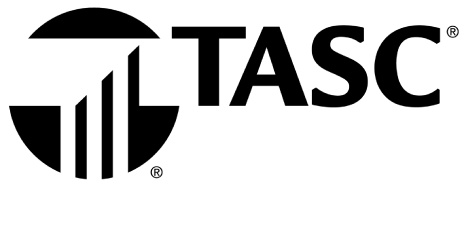Division of Risk Management and Insurance Services
Page Navigation
- Los Angeles Unified School District
- Benefits Administration
-
New for 2025
Effective January 1, 2025, you will be able to contribute up to $3,200 to Health Care FSA.
What is an FSA?Flexible Spending Accounts (FSA) are voluntary plans that enable active employees to save money by paying for certain health care and dependent care expenses using pre-tax pay. The District offers two special tax-savings accounts to eligible employees – Health Care FSA and Dependent Care FSA.
A full list of eligible Health Care FSA and Dependent Care FSA expenses can be found under IRS Publication 502 and IRS Publication 503 at www.irs.gov.
-
Important Facts -
The accounts are separate. Contributions made to the Health Care FSA cannot be transferred to the Dependent Care FSA or vice versa.
Participation in a FSA may slightly reduce your future Social Security benefits as your FSA contributions reduce your taxable income.
The FSA plan year runs on a calendar-year basis, from January to December.
FSA plans incorporate a grace period at the end of the plan year. The grace period is an additional 2½ months (January 1 through March 15) during which you can incur eligible expenses that can be reimbursed from your unused prior year FSA account balance. The grace period extends the amount of time you have to incur eligible expenses and helps you avoid forfeiting any of the funds you have already deposited in your FSA account.
“Use-It-or-Lose-It” Rule: Any funds remaining in your FSA account after the 2 ½ month grace period has ended (March 15 of the year following the current plan year) will be forfeited. Estimate your future expenses carefully to protect yourself against forfeitures. Unused FSA balances cannot be forwarded to the next calendar year except where the FSA account includes a grace period.
If on an unpaid, authorized leave, your FSA deductions will be put on hold. The payroll deductions for the FSA will resume when you return to work. The deduction amount will increase to compensate for the missed contributions. You may only file claims for care that was provided while you were actively contributing to your account. Employees who separate, resign, or retire before the end of the plan year have 90 days following the date of separation/termination to submit claims for reimbursement
-
Contribution Amounts -
Your contributions will be credited to your FSA through automatic payroll deductions which are taken in equal amounts from each paycheck throughout the year.
The maximum annual contribution for a Health Care FSA is $3,200.
For a Dependent Care FSA, the maximum annual contribution is limited to the lowest of the following amounts:- $5,000 if married and filing a joint return or if employee is a single parent;
- $2,500 if married but filing separately;
- Employee’s earned income for the year; or
- Spouse’s earned income if the employee is married at the end of the tax year.
The minimum annual contribution for both options is $120.
-
Information for Retirees and Separated Employees -
FSA cease to receive funding upon retirement or separation. Reimbursements after retirement/separation are issued only for services rendered while the employee was employed. You have 90 days to file these claims.
Any services rendered after retirement/separation; claims will not be processed for reimbursement.
-
Contact Information
Phone Number:
(800) 422-4661
-
To participate in an FSAEligibility
All District employees, including those not covered under District-sponsored health benefits can enroll in an FSA account.
Dependent Care FSA:
Pre-tax account used to pay for eligible dependent care services for your children (under the age of 13) or other eligible dependents so that you can work. If you are married, your spouse must work full-time, go to school full-time for at least five months of the year, be disabled or be unable to care for your dependents to be reimbursed. If you are paying for adult daycare outside your home, your dependent must live with you at least eight hours a day. Daycare providers must claim the income on their tax return and you will be required to include their Social Security number on your reimbursement request.
Health Care FSA:Pre-tax account used to pay for eligible health care expenses incurred by you and the dependents you claim on your federal income tax return can be reimbursed.
EnrollmentEnrollment in the Health Care FSA and/or Dependent Care FSA is not automatic and the election you make for one plan year does not automatically carry-over to the next plan year. You must enroll/re-enroll during each year’s Open Enrollment period (held during mid October) in order to participate in the following calendar year’s (January to December) plan.

If you are a new employee, you can enroll by filling out the HB6 Flexible Spending Account Enrollment form. This form can be found in the Forms/Publications page.
Once you are enrolled, mid-year changes can only be made if you experience a qualifying major life event. You must submit your request within 30 days of your qualified event. Any approved changes will be reflected on your future paycheck(s).

To make a change due to qualifying major life event, please submit HB12 FSA Request for Change form. This form can be found in the Forms/Publications page.
-
Filing Claims
Any time after the date of service, you may submit your request for reimbursement through TASC using any of the options below. Reimbursements will be automatically deposited into your TASC debit card. To elect reimbursement by check or direct deposit, please visit lausdtasc.com. Filing for reimbursement can be made at any time of the year.
1. Mobile: Download the TASC mobile app and submit your claim reimbursement request. Mobile App Instructions.
2. Online: Login to your account and submit your claim reimbursement request online. Online Instructions.
3. Paper Form: Fill out the Universal Request Form (Reimbursement Form). The participant TASC ID # can be found on the back of your FSA debit card.
For Health Care expenses, as long as the total claims for the year do not exceed the amount initially established for the year, your eligible claim will be processed.

Tip: Orthodontic expenses are treated differently under Health Care FSA because treatments often span multiple years. The IRS only allows reimbursement for services provided within the same plan year. Depending on your payment arrangement—monthly or full upfront—you may need to submit different documentation. Please refer to the Orthodontia Worksheet and Instructions for guidance on how to submit expenses for reimbursement.
For Dependent Care expenses, reimbursements will be processed up to the amount that has been contributed and reduced by any previously processed reimbursements.

Tip: Save time by submitting a Dependent Care Contract instead of submitting monthly recurring expenses for daycare centers, childcare services, preschool, adult daycare, etc.



